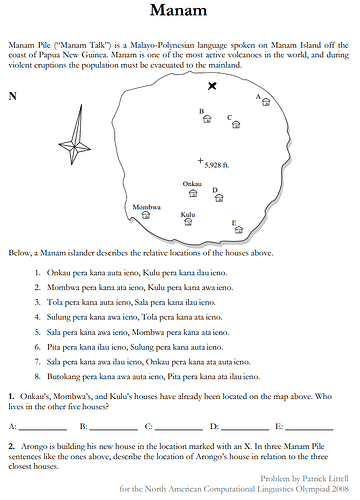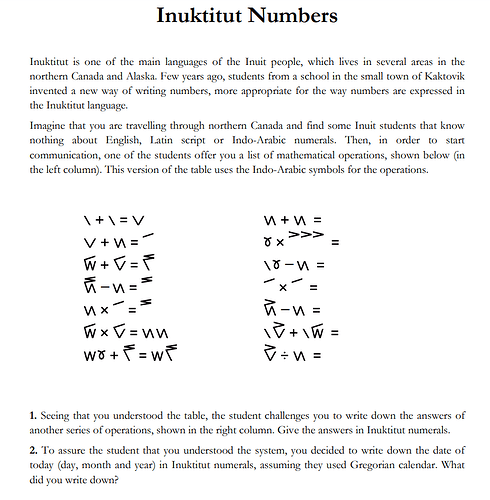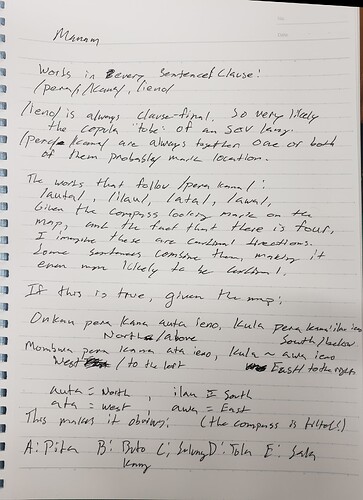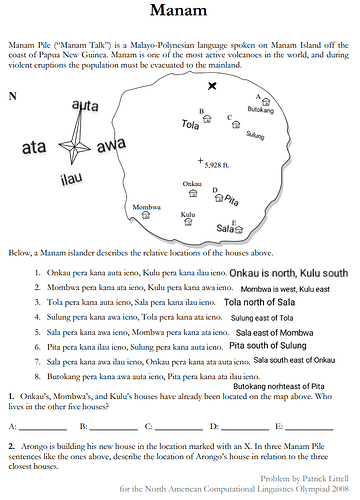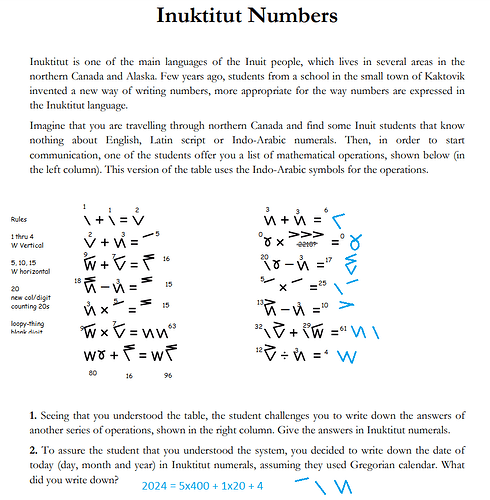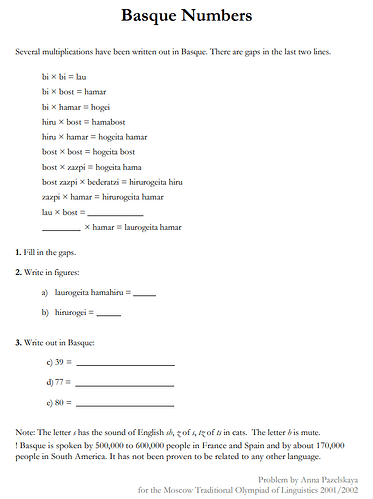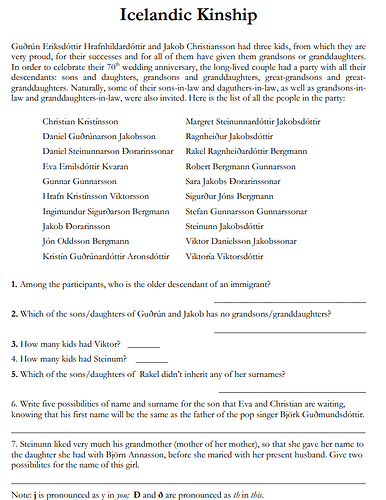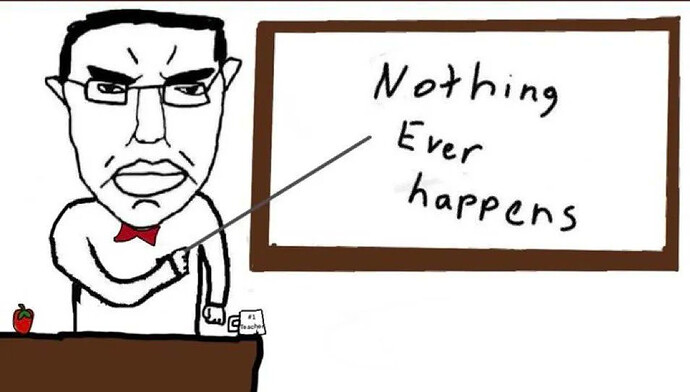It's called the Lounge. You should just make the thread again in the Lounge because this is my thread now. Ahahahahahhhhhhhhhhhhhhhhhhhhhhhhh
It's nobody's thread.. we're just waiting for the next problem set.
Manam:
I am scared of numbers so I might skip the inuit one
Inuit was fun & easy. Very familiar to maths/computer people
haven't done manam yet
Or Lalalak or Greek
So can't go over the answers to those
I think I got one of my sentences in #2 wrong but I'll take the L and submit that one first.
Took a crack at Manam and checked the solution - I was wrong.
We may need a dedotated solutions-checker for the hards as I want to be able to participate without spoiling myself.
Huber's answer: I think I am going to maximize fun for you here and simply point out where it doesn't work without giving any additional info which may help in solving. You've marked Pita as location A, but statement 6 would contradict, by your translation, no?
Here's my attempt at it, which is also wrong.
Manam is considered unsolved.
yeah you're right I got mixed up somewhere. looking again in a bit
Nice Krazy. Winner on the numbers puzzle
Inuktitut Numbers explainer
It's a base-20 system with sub-base 5. Numbers 1 thru 4 are counted in the vertical W slashes, multiples of 5 in the horizontal W slashes above the vertical W, and multiples of 20 counted as a new column/digit like our multiples of 10 in our number system.
The swirly thing is a 0 and the rest is just algebra.
Replacing 1 numbers puzzle with another one:
Problem 5
Unsolved:
Basque Numbers, Manam (there is a major trick that is missed here - we could honestly all work on it together)
To review (probably solved):
Basque Kinship, Lalala and Greek
I'm adding a replacement for Basque Kinship for Huber to do when he logs on, since that one is probably solved I just haven't had a chance to review
Problem 6
The Basque number is messing with my brain.
Here are my thoughts so far.
Summary
Bi + bi cannot be 0 or 1.
I think the gieta suffix is 1 followed by zeroes, and the prefix is the number of zeroes.
I can't get any numbers that fit.
My Halfway-thoughts on Basque Numbers
Sometimes my approach to these is to just make some assumption and start plugging things in. See if it pans out and if the assumption still makes sense with more information
Right off the bat - bi x bi = lau i'm like OK, 2 by 2 is 4.
bi x bost = hamar 2 by 5 is 10 - hamar feels different from the previous numbers, multiple syllables, makes sense to be 10
bi x hamar = hogei - hogei would be 20
hiru x bost = hamabost. Now here is our first test. These feels like a strong validation - if I make a new base assumption off of this, I am looking for a number that, when multiplied by some mystery number, ends up as a seeming compound of itself (hamabost = hama + bost). 5 is the perfect fit and here we would have the compound of hamar (10) and bost (5) making 15
so hiru x bost = hamabost - 3 by 5 is 15
hiru x hamar = hogeita hamar - seems like we are saying "20 and 10" here which is a little weird
bost x bost = hogeita bost - 25, makes sense
bost x zazpi = hogeita hama - now I am in trouble because I don't know what the difference between hamar and hama is. Change in how things are structured again would suggest "hundred" but we already have hogeita = 20 so zazpi can't be 20 making 5 x 20. This could be 5 x 40 = 200 but seems i'm stretching
bost zazpi - Now I have lost the plot, can't just keep making things up have to understand the language
So reaching the bottom. We have to examine these "laurogeita" "hirurogeita" as 400, 300
Which means maybe going back and re-examining "hogeita," which I had called 20, as this is a similar compound word. If "ho" is 1, this could be 100, but it breaks a lot of the earlier statements
that kosraean language has 10,000 speakers -- but they somehow need people to translate for it on the border lmfao
Aguacateco roughly translates to "language of the avocados"
By roughly I mean I completely made that up.
